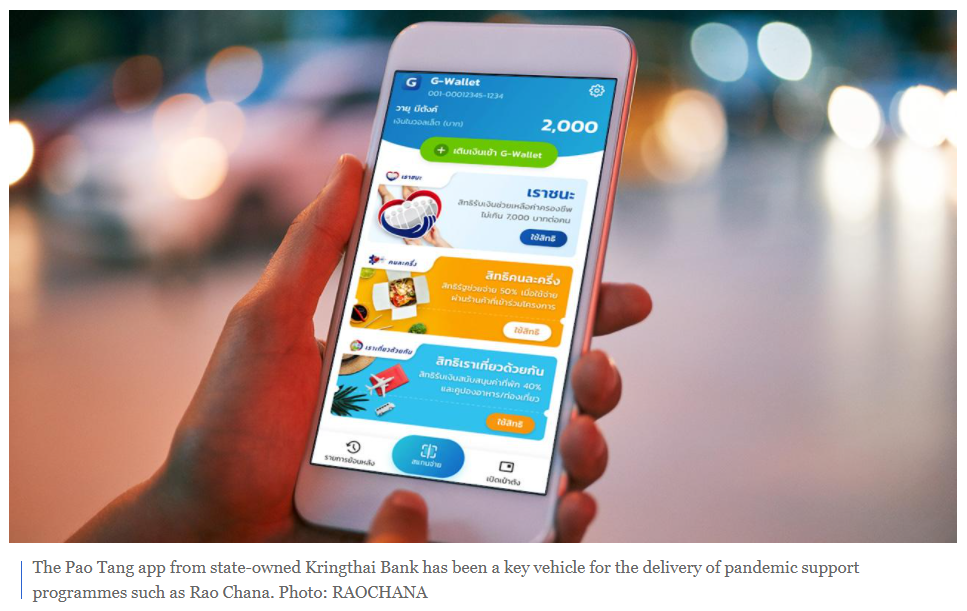Asean’s crucial digital mission
Speeding up digitisation and bridging the digital divide in the region is a mission of paramount importance, in the view of lawmakers who took part in the 42nd General Assembly of the Asean Inter-Parliamentary Assembly was held in August this year.
Having highly transformative technologies will improve economic competitiveness and the well-being of citizens, while ensuring inclusion and sustainability, participants agreed.
Undeniably, the coronavirus pandemic has expedited digital transformation in Southeast Asia and beyond, as individuals, businesses and governments sought ways to cope with lockdowns. Businesses adapted by pivoting toward e-commerce and embracing communication and teleconferencing tools, while schools offered online lessons.
Digital technology will also be a significant driver of the recovery in Asean as economies begin to reopen. Digitisation has already created great advances in areas such as e-commerce, data infrastructure and digital banking. Asean governments have also been proactive in nurturing digital talents.
E-commerce sales in Southeast Asia reached US$62 billion last year, and are predicted to increase by $100 billion within the next four years.
in Vietnam alone, the digital economy is forecast to be worth $52 billion by 2025. The country of 98 million people is a highly lucrative emerging market where e-commerce giants such as Alibaba and Amazon are among those seeking a foothold.
The e-commerce platform Tiki is Vietnam’s biggest homegrown digital shopping platform. Like Amazon, Tiki began as a digital bookstore and has evolved into offering a wide range of consumer goods such as lifestyle and electronic products. Recently, it branched out into offering insurance by partnering with AIA.
Vietnam is also emerging as one of the highest-potential markets in the world for data centres. The country’s data centre market, currently worth $858 million, is responding to fast-growing demand for faster processing speeds and improved data storage.
On a macro level, the growing complexity of global supply chains — and the shortcomings that the pandemic exposed — have created great demand for better access to reliable data for all participants. That was the idea behind the creation of the Singapore Trade Data Exchange (SGTraDex), a platform that allows supply chains to be connected locally and internationally, while also ensuring financing integrity and improving operational effectiveness.
In Indonesia, the Chinese tech conglomerate Tencent Holdings opened its first data centre in Indonesia in April this year, as it seeks to tap into one of the fastest growing regions in the world.
As part of its digital transformation mission, the Indonesian government hopes to nurture 9 million expert digital talents by 2030. The Communications and Information Ministry has begun by setting up a scholarship programme for IT talents.
There has been strong private-sector support, notably from Tokopedia which inaugurated the AI Centre of Excellence and the Tokopedia Academy to spur innovation and create a pool of tech talents.
In Malaysia, the SayaDigital initiative focuses on raising digital literacy among young people and senior citizens, who can receive training in the use of e-banking and e-wallets, among others. The inclusive approach is aligned with the Malaysian Digital Economy Blueprint and the Shared Prosperity Vision 2030.
According to Boston Consulting Group, Southeast Asia is one of the most attractive places for digital banking. There is immense potential with Asean nations having a combined digital population of more than 400 million.
Thailand has been an enthusiastic adopter of digital banking applications, with the likes of Pao Tang from Krungthai Bank (KTB), K-Plus from Kasikornbank, and SCB Easy from Siam Commercial Bank.
Pao Tang is the country’s largest digital banking application, with some 40 million users, providing financial, investing and internet banking services.
During the pandemic, KTB expedited its transformation to digital banking, leading to a 70% increase in mobile banking transactions.
In Cambodia, Prince Bank launched the Prince Mobile application two years ago. Customers can transfer funds, pay bills and manage their finances online, while the app’s data analytics capability allows it to deliver financial insights and advice as well.
These are just a few examples of how the pandemic has expedited the Fourth Industrial Revolution, where technologies such as artificial intelligence, automation and the Internet of Things will alter how we live and work.
Taking full advantage of these digital technologies will be crucial for Southeast Asia’s economic recovery.
Source: https://www.bangkokpost.com/business/2191975/aseans-crucial-digital-mission


 Thailand
Thailand




